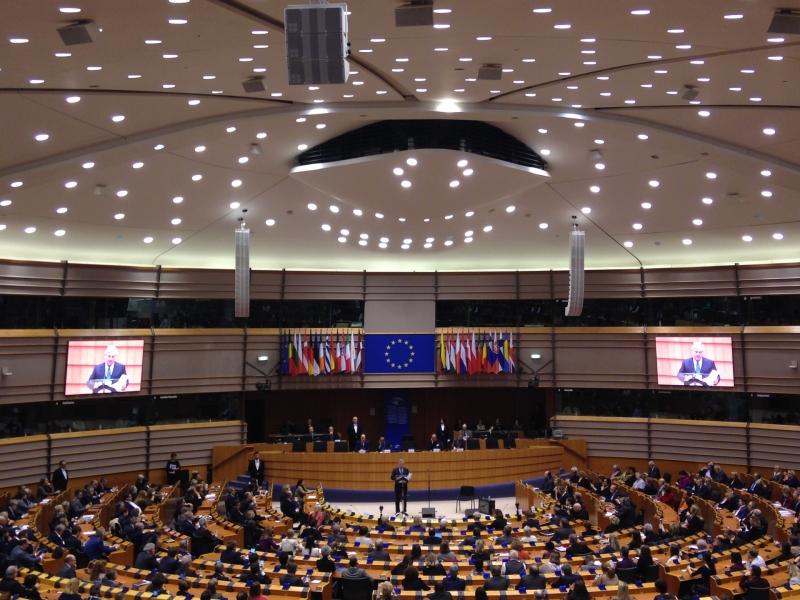During the two-day visit to Brussels, members of the delegation of the Parliament of Montenegro had the opportunity to talk with representatives of the EU institutions about political culture and political groups in the European Parliament, legislative process within the EU and its financial support to the countries aspiring to membership. They also spoke on political topics such as the current situation in Montenegro and progress of the state on its path to the EU.
The general impression is that MEPs strongly support the process of European integration of Montenegro, which is also confirmed by recently adopted Report of the European Parliament on Montenegro. MEPs welcomed the continued and steady progress of Montenegro in the accession negotiations and the results achieved in the implementation of key reforms, but also expressed concern over alleged attempts of Russia to influence on developments in Montenegro, because, as the Report of the European Parliament states, this pattern of behaviour in the region could involve the further destabilization of the Western Balkans.
European parliamentarians agreed that it is necessary to ensure uniform progress in the rule of law and other negotiating chapters, and that, despite the significant results achieved in strengthening of the normative framework, further efforts should be made in the fight against organised crime and corruption. Montenegro's commitment to regional cooperation was especially praised, and, despite the internal challenges of the EU, optimism regarding its EU membership was expressed. The interlocutors welcomed Montenegro's progress on its path to NATO membership, and expressed expectations for the imminent ratification of the Accession Protocol. Talking about the current political situation in Montenegro and boycott of parliamentary activities by the opposition, a strong message that the political dialogue must be conducted in the Parliament has been sent.
Members of the Montenegrin delegation confirmed the determination of the state to achieve its geo-strategic objective with regard to membership of the EU, and asked their counterparts from the European Parliament about the impact of the UK’s exit from the EU, not only on the future of the EU, but also on the enlargement policy. Also, they were interested in the prediction of European parliamentarians with regard to the accession of the Western Balkans, but there were also specific issues regarding the cooperation of state institutions with civil society, the media environment in Montenegro, cooperation of the European Ombudsman with ombudsmen of candidate countries, as well as key results of the EU funds usage.
During this visit, organised within the European Parliament Support Programme for the Parliaments of the Enlargement countries, members of Delegation of the Parliament of Montenegro attended the ceremony of marking EU's 60th anniversary since signing the Treaty of Rom, as well as meeting of the European Parliament’s Subcommittee on Security and Defence.
During the two-day visit, the following key EU officials spoke with Members of the Parliament of Montenegro: vice presidents of the European Parliament Ms Ulrike Lunacek and Mr Ioan Mircea Pașcu, members of the committees on foreign affairs, budget control and regional development and rapporteur of the Committee on Foreign Affairs for Montenegro Mr Charles Tannock, as well as representatives of the European Commission, the European External Action Service (EEAS), the European Court of Auditors and the European Ombudsman.
Delegation of the Parliament of Montenegro was composed of Chairperson of the Committee on European Integration Mr Adrijan Vuksanović and members of the Committee Ms Marija Maja Ćatović, Mr Andrija Nikolić and Mr Mihailo Anđušić, as well as MPs Mr Miloš Nikolić and Mr Nikola Rakočević.












